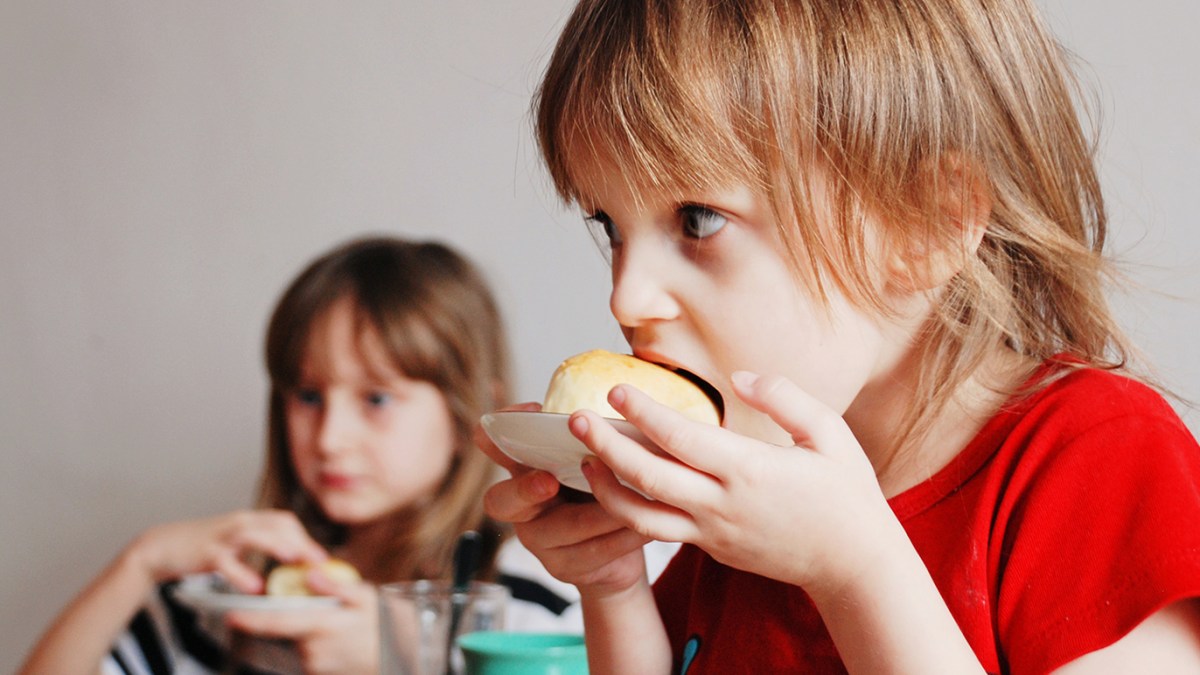A report issued by the British National Health Service (NHS) in 2021 showed that more than a quarter of sixth grade students suffer from obesity, and that about 5% of children of the same age have an eating disorder, while children with a healthy weight decreased their percentage from 63.4% to 57.8%, prompting experts to warn that thousands of children could face "serious" and even "devastating" consequences as a result of being overweight.
In response to the growing challenge of childhood obesity, researchers at the University of Bath, in collaboration with the British Dietetic Society (BDA), have presented a "new guideline" to help parents with what to say, do or avoid when talking to children aged 4 to 11 about their weight.
By "reducing blame, talking about weight, food and physical activity at home more positively", protecting them from taking a negative view of themselves, encouraging them to have a healthy weight, "to prevent the risk of diseases such as diabetes or high blood pressure in the future", and recognizing the importance of physical activity and healthy eating "to improve their well-being and self-confidence".
Among the guidelines recommended by the researchers are the following:
Parents should avoid negative comments that can lead to permanent harmful effects on the child (Pixels)
Not considering "weight" a taboo word
Talking about weight can be a sensitive topic for children and teenagers, so some parents are reluctant to use the word "weight," using words like "growth," "health," or "exercise."
The guideline recommends not ignoring the topic of weight, and the researchers argue that "talking about weight openly," by focusing on small, spontaneous conversations in normal times, rather than large, lengthy talk sessions on the topic, "can build confidence and prevent children from feeling ashamed about it." They reject that "weight" is a taboo word, as this "can cause shame and anxiety in a child."
Experts warn against hesitation in starting an open dialogue about weight with children, stressing the need to listen to them, encourage them to share their thoughts and feelings about body image, and acknowledge that they are real feelings, so that neglect does not cause "serious, lifelong effects".
Avoid criticism
Professor Fiona Gillison, principal investigator in the Department of Health at the University of Bath, urged parents not to criticise children's weight or appearance as "this can make them think this will be a way of judging them as well".
The experts also stressed the importance of parents avoiding negative comments that can lead to permanent harmful effects on the child and his relationship with food, and to set a good example when talking about bodies in general, whether it is their own bodies, their children's bodies or the bodies of others, in order to "help children understand that it is normal for people to be of different shapes and sizes, and that their parents love them no matter what."
The guide recommended not only focusing on the problem of weight control, pointing out the need to provide a practical example (Pixels)
Setting an example
Because children learn quickly, their education is better by example, so the guide recommends that parents "not just focus on the problem of weight management, and urge them to set a practical example themselves, by showing their keenness to eat healthy and practice physical activity regularly."
Notifying the child of the power of participation
Recommendations also include engaging children with other adults from family and friends in choosing lifestyle changes together, "so that the child feels more empowered by participating in the process."
This is in line with expert advice, to ensure that "parents and other important relatives are in a united front with balanced speech, the child avoids mixed messages about weight, and can have unhealthy consequences."
Proficiency in responding to comments
The guide pointed to some common situations, such as the child being described by another person as "fat." He made suggestions on how to respond, such as "I think he's bigger than some people, but everyone may look different."
Besides, parents can train children to respond positively if they hear someone say this, by saying, "No matter how big the quail, they can be as smart or friendly as you, and that's much more important than their appearance."
Never scream or punish children for weight, food, or physical activity (Pixaby)
Several months before the new guide was released, experts provided Eat Right with more guidance for talking to children about weight, healthy eating and physical activity, such as:
Avoid yelling, threatening and punishing
Experts advise avoiding the blame and anger game as a step to failure, because the results can be harmful, when these problems turn into battlefields between parents and children, the worse children feel about their weight, "the more likely they are to overeat, or an unhealthy relationship with eating."
Tracking the sources of a child's sense of obesity
"If a child's weight, eating and activity seem normal and age-appropriate, they should be reassured without focusing on their weight, but if they start to complain of feeling obese, it is better to track the sources of thoughts that may be responsible for this," experts say. He may have noticed difficulty in some sports, someone bothered him about his weight or commented on the size of his stomach, or watched on TV or the Internet overweight children, etc. But, "if another child or adult is bullying, the situation must be addressed directly and as soon as possible."
Providing the child with healthy habits
If you have some concerns about your child's excess weight in elementary school or below, experts prefer to start making some changes in the family lifestyle, to help them eat consciously and intelligently and move more by providing regular, balanced family meals, along with snacks. In addition to limiting the time spent in front of screens, and instead looking for ways to spend quality and active time together.

